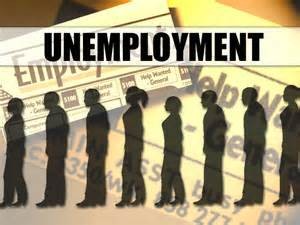 The representative of the Holy See, speaking before the recent International Labour Organisation (ILO) Conference, addressed the issues the current economic state has presented for young people.
The representative of the Holy See, speaking before the recent International Labour Organisation (ILO) Conference, addressed the issues the current economic state has presented for young people.
Unemployment continues to be a major issue for young people, with the average rate of unemployment for youth being on average three times higher than their adult peers. In order to offer full employment for the expected labour market, 280 million jobs would need to be created by 2019.
This high rate of unemployment contributes to the overall inequality in society that the Holy See feels needs to be addressed by carefully designed labour markets and tax policies. While recognising the short term costs of labour protections such as a minimum wage and a cap on hours worked, the Holy See thinks these measures are important to protect long term growth for a just labour market. In examining the well being of a nation, economic indicators should be considered in conjunction with quality of life indicators including access to quality services, education, decent work, adequate, safe and nutritious food, adequate housing, personal safety, and basic income security, as well as the enjoyment of a safe, clean, healthy and sustainable environment.
The need to promote the development of Small and Medium Enterprises (SME) was stressed. SMEs create an environment in which entrepreneurship, creativity, and industriousness can thrive. However, SMEs also tend to have suboptimal labour conditions that need to be prevented from occurring.
The Holy See also recognised the challenges created by the large role of the informal economy in many nations. “The ‘informal economy’ includes all economic activities not adequately covered by formal arrangements as well as informal work which can be carried out across all sectors of the economy both in public and private spaces. Most people enter the informal economy not by choice, but as a consequence of lack of opportunities in the formal economy, or because the institutional development does not allow the emergence of a sufficiently developed formal sector.”
In discussing the informal economy it is recognised that although it represents an active portion of the economy that may indicate growth and development, it overall poses important moral questions because of the lack of protection for workers. These workers are faced with low standards of living and poor wages. As such, the Holy See urges for a gradual transition from informal to formal economies in a way that considers the causes of workers for entering the informal economy, the need to prevent and sanction those who use the informal economy to avoid taxation and regulation, and to be cognisant of the threat of child labour within informal economies.
The Holy See pushed for increased openness to international integration with policies based on the above mentioned principles when forming new international agreements. They stressed the importance of the ILO Standards as the basis for future bilateral and multilateral agreements. Ultimately, their goal is for social justice to be the guiding goal of economic progress.
Thanks to Thomas Severin (ERI internn) for this summary of the Statement by Archbishop Silvano M. Tomasi, Apostolic Nuncio, Permanent Observer of the Holy See to the United Nations and Other International Organizations in Geneva at the 104th Session of the International Labour Conference on 4 June 2015